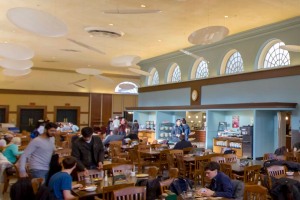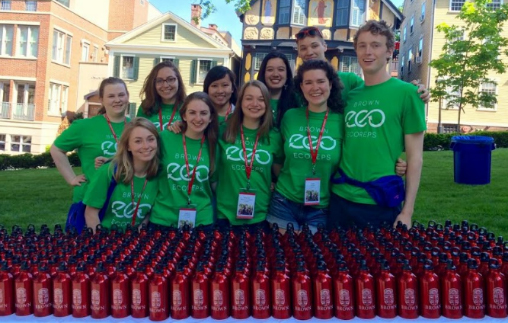Brown Dining Services (BDS) works to integrate sustainable principles in every aspect of their operation. Dining’s goal is to meet the needs of of the campus community today without compromising the needs of future generations.
BDS began a partnership with the Bon Appetit Management Company (BAMCO) in 2016. BAMCO chefs and personnel work alongside BDS staff in all aspects of dining operations including vendor and food sourcing, menu planning, and marketing, integrating BAMCO’s robust sustainability principles into Brown's operations wherever feasible. Over 70% of Brown’s purchases meet these strict sustainability criteria.
BDS implemented a composting program in all kitchens at Brown, has reduced its GHG and nutrient impact by reducing red meat purchases, and increased its local partnerships which decrease emissions from transportation.


 Trayless Dining
Trayless Dining